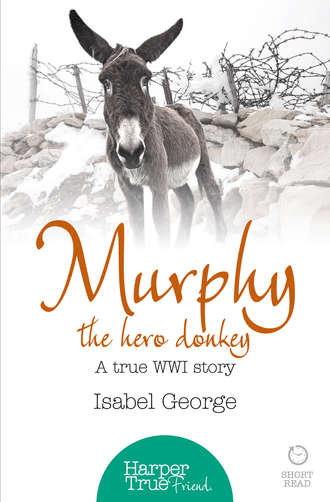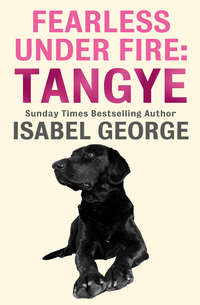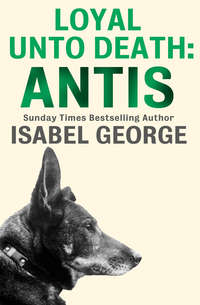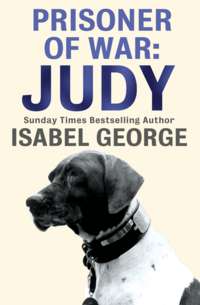
Полная версия
Murphy the Hero Donkey: A true WW1 story

Murphy the Hero Donkey
A true WWI story
Isabel George

Copyright
HarperTrueFriend
An imprint of HarperCollinsPublishers
1 London Bridge Street,
London SE1 9GF
www.harpercollins.co.uk
First published by HarperTrueFriend 2015
FIRST EDITION
Text © Isabel George 2015
Cover photo © Shutterstock 2015
Cover layout © HarperCollinsPublishers Ltd 2015
A catalogue record of this book is available from the British Library
Isabel George asserts the moral right to
be identified as the author of this work
All rights reserved under International and Pan-American Copyright Conventions. By payment of the required fees, you have been granted the nonexclusive, non-transferable right to access and read the text of this e-book on screen. No part of this text may be reproduced, transmitted, downloaded, decompiled, reverse engineered, or stored in or introduced into any information storage retrieval system, in any form or by any means, whether electronic or mechanical, now known or hereinafter invented, without the express written permission of HarperCollins e-books.
Find out about HarperCollins and the environment at
www.harpercollins.co.uk/green
Ebook Edition © February 2015 ISBN: 9780007584352
Version 2016-10-19
Digital eFirst: Automatically produced by Atomik ePublisher from Easypress.
Contents
Cover
Title Page
Copyright
Prologue
Every man – and donkey – for himself
‘Stretcher-bearer!’
Murphy’s war
Brave warriors … and their donkey
Into the valley of the shadow of death
Tuesday, 18 May 1915
Wednesday, 19 May 1915
Murphy works on
Moving out …
Murphy enters the history books
About the Author
Also by Isabel George …
Also by Isabel George …
Coming soon from Isabel George …
Moving Memoirs eNewsletter
Write for Us
About the Publisher
Prologue
He was a small grey donkey who, in April 1915, happened to be in the wrong place in wartime. But when Murphy was given the job of carrying wounded soldiers from the craggy battlefield of Gallipoli, he not only saved countless lives, he also became a decorated Australian war hero.
Every man – and donkey – for himself
Standing muzzle to tail, the donkeys nudged into each other’s dusty bodies as the seawater slopped against the creaking boat. More accustomed to hoofing through the hot Greek earth, the huddled beasts swayed stoically against the swell. There had been some nervous braying when the cramped vessel sailed away from the island of Lemnos, but at least this time none of the animals had panicked and leaped overboard, as sometimes happened. The donkey drivers could put up with their charges’ mournful call, but not the feeling of helplessness when they could only stand by and watch one of the frightened creatures splutter and gasp as the water claimed them. It seemed an unfair end, especially as the donkeys had made the job of rounding them up so easy. Taken from the safety of their farmers’ barns and fields, they obligingly boarded the transport ships to make the short but hazardous journey to the steep and craggy slopes of Turkey’s Gallipoli peninsula.
Under the cover of night, the vessels slipped into the bay as close to the shore as they could get. No breeze. No lapping of the sea on the shore. Nothing met the muffled slosh of the donkeys’ hooves as they stepped into the water and ambled towards the beach. Their drivers moved in like sheepdogs, keen to keep their charges on track and to minimise the chance of them uttering a sound that would give them away. Never one to miss a chance to eat, Murphy, the smallest of the lot, picked up a slight trot to the shore. He must have smelled something edible, as the darkness was blinding and the others seemed more intent on finding their footing rather than food. With his hairy nose down to the ground, Murphy was soon nipping at the sparse vegetation that spiked between the black rocks. There had been no food and only a little water offered on the boat, and he couldn’t smell anything, not even clean drinking water where they had landed, so grabbing as much food as he could, while he could, was a good instinct.
‘Somebody grab the bloody donks!’ The loud whisper filled the space. Several of Murphy’s group answered with a deep bray, and within seconds they were surrounded by soldiers reaching through the shadows, their black forms illuminated by starlight as they grasped at as many bridles as they could handle at once. Murphy managed to dodge the first lot to be whisked away, only because he was head down and nose-deep in the few clumps of scrub that he had managed to discover underfoot.
‘Get a move on, will you?’ the voice from the darkness urged the men on. ‘We need to get this lot shifted before sun-up or we’re dead where we stand. You lot,’ said the officer, pointing at a group of men already staggering under the weight of their own equipment. ‘Strap the water containers on the donks. As far as I can see they are the only ones with the right feet to get anything anywhere in this godforsaken place.’
Boxes and crates filled with food, water, ammunition and medical supplies littered the beach, and a consignment of mules lifted from their labours in Egypt wandered aimlessly between the lot. ‘For Christ’s sake, get those mules loaded up before we …’ Wharrrr! Wharrrrr! ‘Run for it, lads –’
The officer’s last words disappeared into the gloom as he fell face down into the sand. The men swarmed around the pile of supplies, diving for cover from the enemy on the overhanging rocks in the remaining pools of shadowed ground. The Turks’ machine-gun fire tore into the dawn sky with bright orange fingers, and the bodies of the young Australian ‘diggers’ (soldiers) fell like dominoes. The enemy had watched and patiently waited for enough light to kill by.
The still, grey shadows of the laden donkeys mingled with the scattered bodies of the fresh-faced Australian and New Zealand soldiers. A few of the giant water-filled kerosene containers had been shot free of the donkeys’ panniers and lay, peppered with holes and leaking their valuable contents, near the fallen animals. Somewhere among the survivors was Murphy.
While Murphy waited on the sand, Jack Simpson was fighting for his life as the enemy bullets rained down. Jack had landed on the shores of Gallipoli just a few hours ahead of Murphy and the thousands of men of the Australian Imperial Force. He was just 22 years old but he had already managed to pack a few twists and turns into his relatively short life. John Simpson Kirkpatrick was not a true Aussie. He was an Englishman, a ‘Geordie lad’, born in South Shields on 6 July 1892, who misspent his youth by getting into mischief around the docks near his home. His mother, Sarah, and his father, Robert, were probably relieved when their son announced, after leaving school aged just 13, that he had found a job as a milk delivery boy. But the job soon proved too dull for a boy looking for adventure, and three years later he decided to broaden his horizons by enlisting in the army. The 4th Durham Battery of the 4th Northumbrian (County of Durham) Howitzer Brigade welcomed him, their eager new recruit, and by the age of 17 he was serving with the Royal Field Artillery.
After a year Kirkpatrick decided to swap services and join the Merchant Navy, but he quickly discovered that it didn’t suit him any better and he deserted his ship soon after she docked in Australia. For four years he travelled the country, but it was the outbreak of the First World War that presented him with an unpredictable opportunity; he saw it as his passage home. Adopting his mother’s maiden name to disguise the fact that he was a deserter, Private John Simpson enlisted with the 3rd Australian Field Ambulance on 23 August 1914, but unfortunately for him his plan to make it back to Blighty took an unexpected turn. His new career as a stretcher-bearer was destined to take him overseas, for sure, but not to England. Vigorously determined to establish their identity, the new countries of Australia and New Zealand stood out as a vital tool in the Allied campaign. Geography and the happy warrior enthusiasm of the ANZACs (Australian and New Zealand Army Corps) put them in the front line for a new wartime adventure – an attack on the Ottoman Empire.
By December 1914 the war in Europe had reached a stalemate. Unable to secure a true sense of what would happen next on the already horrifically battle-scarred Western Front, the politicians and the military minds turned their attention to the situation in the Middle East and Turkey. The ‘gung-ho’ approach of the early months of the war had faded with the stark realisation that no one would be home for Christmas after all, and the war was a vile reality that the world would be living with for some time to come. So far an attitude of gamble, risk and adventure had resulted in disaster and an unprecedented loss of life. Britain and France had suffered a million casualties in the first four months of the war alone. Going forward, victory would have to depend less on the number of men and more on the quality of their leaders.
To capture a chance of glory in the Middle East and pip Germany, or rather the Kaiser, to the prize of the Holy Land and Syria, the generals of the old school pushed on towards their prize. They had already secured the blessing of Lord Kitchener, the British Secretary of State for War, so nothing other than the Germans stood in their way. But it was the First Lord of the Admiralty, the up and coming young statesman Winston Churchill, who offered an alternative approach to their plan – and according to him, his was a winning plan. He proposed to spread the Allied naval fleet through the Dardanelles, the narrow 38-mile strait that split Europe and Asia in north-west Turkey, seize Constantinople and gain control of the waterways linking the Black Sea in the east and the Mediterranean Sea in the west. This would give, in theory, a clear sea route to its allies in Russia and make a much-desired direct hit on the old Ottoman Empire. The upshot would be to force one of the neutral countries of Bulgaria, Greece and Romania to join the Allied forces. It was a daring plan but Churchill was convinced that it could ultimately win the war, and he managed to convince the War Cabinet that it could too.
It was decided that the attack would be launched on the Gallipoli Peninsula, but almost immediately the War Office withdrew its promise to commit troops to the campaign, saying the men had already been promised to the Western Front. Not to be deterred, Churchill forged ahead and sent in the Allied fleet anyway. At dawn on 19 February 1915 the Dardanelles came under attack from British and French battleships. The long-range bombardment was intense and initially successful until bad weather stalled its progress. As the Allied minesweepers moved in they attracted enemy fire and had to be withdrawn. Under increasing pressure from Churchill, the British naval commander Admiral Sackville Carden suffered a nervous collapse and his successor, Vice-Admiral John de Robeck, was put under equal pressure to push on despite the growing strength of the opposition and the lack of back-up on the ground. When he eventually withdrew to wait for the support from the ground troops, the Allied advantage was lost. Churchill’s naval attack had failed.
It was a month before the Allies were ready to launch a major land attack, and in that time the Turks, under a German commander, had prepared their defences. The Turkish troops were told: ‘I don’t want you to attack. I order you to die.’
On 25 April 1915 the British, French and ANZAC forces landed under the cover of darkness. Attacking on six separate beaches (codenamed S, V, W, X, Y and Z) on Helles, the southern tip of the peninsula, the troops were met by varying degrees of Turkish force. It was during the landing on Z beach (quickly christened Anzac Cove) that Jack Simpson and a small grey donkey, yet to be called Murphy, emerged from the shadow of the bullets.
‘Come on, lads, after the bastards! They’re above us so don’t bloody stand there, get up the beach and under the cliffs.’
Jack staggered out of the shallows, his heavy backpack sodden from his slump, waist deep, in the water. In the gloom he saw a hand reach back to steady him as he struggled for balance. ‘Come on, mate, keep your bloody head down. Let’s head for that outcrop of rocks. You with me?’ said Henderson, a fellow digger. Jack was right behind him as they reached the sand, bullets whizzing over their heads. Gripping his rifle with both hands, Jack dived into something soft beneath him. For a split second in the chaos he wondered what it could be, until the starry sky revealed the bodies of his comrades cushioning others crawling to safety.
It was every man for himself out there. Jack and Henderson had made it to the base of the sheer rocks that reached high above the cove, and for a moment the two men clung to the solid mass, just to catch their breath.
‘You know, mate, there’s only one way to go from here, don’t you?’ said Jack, straining his eyes to see the top of the sheet of rock above them. ‘We’re going to have to get up and over this lot if we want to see the day out alive.’
‘Stretcher-bearer!’
A crimson dusk spread over the battlefield of beach and cliffs. The shoreline washed back and forth with the bodies of young ANZACs. The tide had returned some of them to the Aegean Sea and others still floated close to the place where the Turks’ machine guns had cut into them before they’d even reached land. The water was red with blood.
Among the dead lay the dying, some calling out for their mothers. ‘My God,’ Jack sighed, ‘where the hell have we come to? Just hours ago we were in Cairo filling our boots with booze and looking forward to going home heroes. Now all I can see is my mates’ mangled bodies stretched out like a bleeding carpet.’ As the guns finally spluttered to an exhausted silence, Jack and Henderson stumbled towards an outstretched hand on the ground. Jack leant down and reached out. ‘It’s OK, mate,’ he said. ‘We’re here now. Going to get you on a stretcher and off to the dressing station. Hold tight, it’s going to be a bumpy ride over these rocks.’ Jack whistled a jolly song as he patted the man on the shoulder, and then he and Henderson loaded their casualty onto the stretcher.
As they lifted the man thigh-high, a bullet whizzed past Jack’s head. ‘Bloody hell, that was close! Someone doesn’t want you to get to the dressing station, mate. Let’s see if we can get you there before Johnny Turk has another go. One, two, three … lift!’ The stretcher creaked as the weight was lifted, and Jack shifted his feet to get a grip on the sand and shale beneath his solid army boots. A safe pathway between the lumps of rock seemed impossible as both men slipped and slid their way down the hillside, still keeping a firm grip on the stretcher’s smooth wooden handles. The first step onto the sand of the cove was a huge relief, and for the first time since picking their man off the rocks they had a chance to make sure he was still with them.
‘He doesn’t look too good, Jack. I’m not sure he’s going to make it. What do you think?’ said Henderson. Jack took a quick look at the man and then at the small section of the beach where the Red Cross dressing station had been erected. ‘We got him this far so he’s going to make it. Come on, let’s just run for it!’
Running in sand was easier than battling with the shifting shale, and the cover dusk provided inspired the courage needed for the last few yards. Searching for breath, Jack announced his casualty to the nurse standing guard over the stream of arrivals, and within minutes the man had joined the long line of others waiting for medical attention. Moans of fear and pain broke into the strange silence, and every now and then some asked nurses for water and to check limbs that were no longer there. Others lay quietly, the brown luggage labels pinned to their uniforms fluttering in the evening breeze. Standing outside the overcrowded tent and looking back to the rocks, Jack knew that he would have his work cut out and there would be no rest for any of the stretcher-bearers, especially while the guns were silent. Finding the living was a race against time and bullets.
Jack Simpson and Henderson tipped an empty stretcher on its side, picked it up and ran towards the cliffs.
Hundreds of crates and boxes still lay scattered on the beach, and the mules and donkeys shipped over to carry them had strayed along the cove. Wandering unnoticed in the chaos, Murphy had managed to survive and was quickly put into harness to carry the huge kerosene cans filled with water. All around him the other donkeys snorted and wrestled with the heavy burden strapped to their sides. Staggering under the weight, the donkeys picked their way over the sand, making their own virgin pathways between the stacks of supplies and then up onto the rocks. The drivers let the donkeys choose their own way; after all, they could judge the terrain better than any man.
Murphy swayed as he picked along the tracks, one trip after another onto the crags where the men were ‘digging in’, creating ‘bivvies’ – a small cave sliced out of the hillside that provided just enough cover from the snipers’ bullets and the bursts of shrapnel. A salvaged oil sheet pinned in place with bayonets was enough to keep off the heavy night-time dew and the harsh sunlight in the day. Sandbags and coats made good makeshift furniture and ‘carpeting’, but any hint of comfort was spoilt by the arrival of the usual uninvited houseguests – lice and flies. Supplies of food, water and ammunition needed to be brought up from the beach as quickly as possible.
Конец ознакомительного фрагмента.
Текст предоставлен ООО «ЛитРес».
Прочитайте эту книгу целиком, купив полную легальную версию на ЛитРес.
Безопасно оплатить книгу можно банковской картой Visa, MasterCard, Maestro, со счета мобильного телефона, с платежного терминала, в салоне МТС или Связной, через PayPal, WebMoney, Яндекс.Деньги, QIWI Кошелек, бонусными картами или другим удобным Вам способом.






